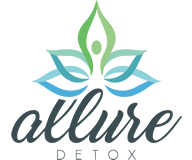Heroin Detox and Recovery
Heroin, a semi-synthetic derivative of morphine, has held a complex and controversial role since its creation by British chemist C.R. Alder Wright in 1874. Initially marketed as a cough suppressant and pain reliever, heroin’s allure has led to widespread misuse, making it one of the most abused substances globally. Heroin’s habit-forming properties are strong, typically causing addiction quickly. Learn more about the history of heroin, how addiction takes hold, and what to expect throughout the detox process and recovery.

Table of Contents
Understanding Heroin and Its Effects
The Chemistry of Heroin
Created by acetylating morphine, heroin is swiftly absorbed and metabolized into the body, particularly the liver. Heroin interacts and binds with the brain’s opioid receptors after crossing the blood-brain barrier, leading to feelings of euphoria and pain relief. Heroin also causes respiratory depression by slowing the rate of breathing, a possibly fatal effect in the case of overdose. Other immediate effects can involve a feeling of warmth, nausea and vomiting, and constricted pupils.
The Vicious Cycle of Heroin Addiction
Likely interested in pain relief, stress relief, or experimental use, heroin users don’t begin as addicts. Over time, however, heroin users develop a higher tolerance to the drug. This changed tolerance level requires higher doses to achieve its desired effects, leading to physical dependence. The body learns to rely on heroin to function normally. When the drug is reduced or discontinued, it leads to distressing withdrawal symptoms.
Physical and Psychological Implications of Sustained Heroin Use
Prolonged effects of heroin can have devastating consequences on the user’s health. Long-term use can cause respiratory infections, liver disease, collapsed veins, and infectious diseases. The emotional and mental toll is equally significant, impacting relationships, careers, and overall well-being.
The Grim Reality of Heroin Overdose
Heroin overdose is a very real risk associated with heroin use. According to the National Center for Health Statistics (NCHS), there were 106,699 drug-involved overdose deaths reported in the United States in 2021 alone. Although lethal doses can vary, heroin often also contains other harmful substances, including Fentanyl, thus increasing the risk of fatality.
Due to the expanding urgency of heroin use, many regions globally have declared opioid use a public health emergency. Consequently, Naloxone, an opioid overdose reversal medication, is now widely available to help combat potentially fatal overdose. These alarming statistics and worldwide problems further highlight the necessity of effective treatment for heroin addiction.
The Imperative of Medical Detoxification
Although the attempts to do so are noble in nature, trying to quit heroin “cold turkey” or without medical supervision can be dangerous or fatal. Withdrawal symptoms can be life-threatening, including dehydration, heart problems, self-harm, and electrolyte imbalances. Without proper medical and emotional support, self-detoxification can lead to relapse, overdose, and death.
Benefits of a Medically Supervised Detox Process
Medically supervised detoxification is a safe and effective way to manage withdrawal symptoms. It provides a controlled environment with trained professionals who can administer medications and interventions as needed. Additionally, medically supervised detox offers a controlled and supportive environment throughout all stages of the detox process to maximize chances of success.
The Stages of Alcohol Detox
Pre-Assessment
Before detox begins, a comprehensive assessment analyzes the extent of addiction, health history, and current health status. A team of experienced healthcare professionals may use evidence-based tools to help determine the severity of withdrawal symptoms and the client’s physical and mental health status. Depending on the assessment results, an individualized treatment plan is created with the client’s unique needs in mind.
As the detox process transpires, users may notice the onset of withdrawal symptoms in about 6 to 12 hours after last use, with the most severe symptoms showing in about 2 to 3 days. The overall process can last from about a week to several weeks, depending on the severity of dependence.
Ranging from mild to severe, withdrawal symptoms can include anxiety, tremors, hallucinations, changes in temperature, mood swings, and seizures. Tailored to the client’s individual needs and preferences, medical detox typically involves medication and psychological support to reduce harm and increase safety.
Medication-Assisted Treatment (MAT) can include administering Methadone, Buprenorphine, and Naltrexone to help ease symptoms and cravings associated with withdrawal. Additional MAT support involves maintaining proper nutrition, hydration, and rest to enhance positive outcomes for clients.
Challenges During Alcohol Detox
Cravings and Relapse Prevention
Battling intense cravings are one of the heaviest psychological aspects of the detox process. Fortunately, there are proven tactics as part of relapse prevention. Coping strategies are an essential tool to proactively address fears, anxieties, and misconceptions about the withdrawal process, particularly in a supportive and controlled environment. Furthermore, MAT, counseling, therapy, and peer support work well to create new habits and pathways for the client to navigate through cravings in a healthy way.
Fears, Anxieties, and Misconceptions About Detox
The misconceptions about withdrawal are numerous, leading to fear and anxiety about detoxification. Providing clients with accurate, educated, and experienced knowledge can help alleviate worries and provide reassurance throughout the detox process.
The Importance of Support
Inpatient or residential treatment programs work best in supportive and controlled environments. Depending on the program, clients may experience monitoring around the clock with professionals available to address withdrawal symptoms immediately. Additionally, clients will live in a more structured and controlled environment to help develop new and healthy habits while decreasing triggers and temptation.
Life Beyond Detox: Rehabilitation and Recovery
Living beyond detox requires a comprehensive approach to ensure sustainable success. Therapy and counseling are imperative in the aftermath of detoxification. Therapy, counseling, and support services will help to proactively address the circumstances contributing to the formation of heroin addiction. Additionally, recovery might include structured and ongoing programs to rebuild a client’s skills and physical and emotional health. By engaging in therapy and structured programs, clients are more able to recognize triggers and utilize effective coping mechanisms as part of relapse prevention.
The Comprehensive Approach of Addiction Treatment Centers
Combining medical expertise with therapeutic support, addiction treatment centers offer integrated care for addiction. Through a holistic approach, treatment providers can provide psychological, physical, and emotional support to guide clients through the most difficult aspects of addiction. Support can include group therapy, peer interaction, and alumni programs to enhance the longevity of successful recovery.
Success Journeys
Part of achieving success in treatment for heroin addiction is knowing there were others before you. Learning about those who have overcome heroin addiction through detox and rehabilitation can be motivational, transformational, and inspiring. Here is what some of our clients have to say about their recovery:
“The comprehensive support provided by Allure Detox was such an important part of my recovery in detox and rehabilitation. I would not be where I am today without their unwavering guidance.” – Zach L.
“Choosing to endure the temporary difficulty of detox and rehabilitation under the guidance of professionals was the best decision of my life. I feel empowered and happy, no longer under the control of heroin.” – Tricia L.
Heroin addiction is a potentially fatal issue, but recovery is more than possible. Through life-saving detoxification, the benefits of this process cannot be overstated. If you or someone you love is struggling with substance addiction, the team of experienced and highly-trained professionals at Allure Detox is here to help. The journey to sobriety begins now, but the benefits are forever. Don’t wait to get started and call Allure Detox today or text or chat with us live.
Resources and Assistance
https://www.alluredetox.com/blog/
https://www.findtreatment.gov/what-to-expect/addiction
https://www.floridahealth.gov/programs-and-services/prevention/substance-abuse/index.html
Published on: 2019-06-19
Updated on: 2024-04-23


